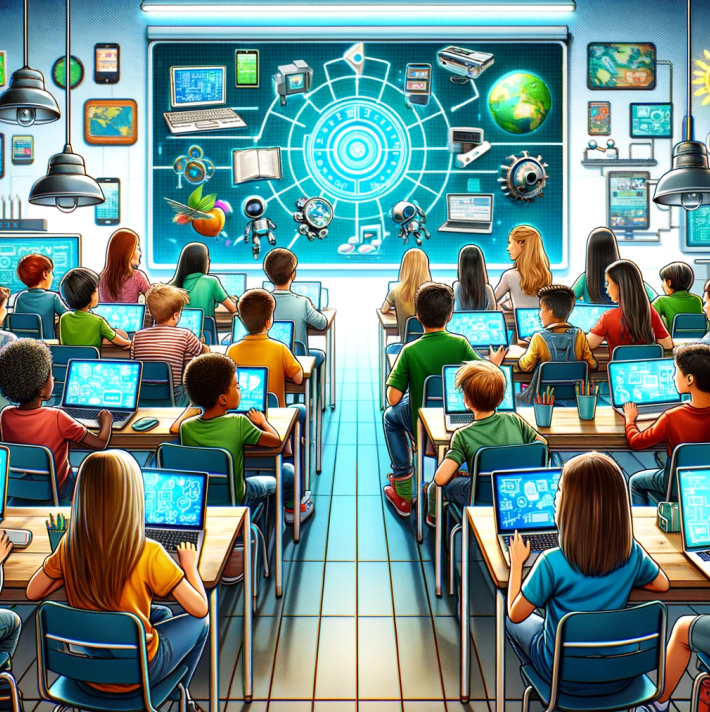Introduction
In today’s fast-paced world, technology has become an integral part of our daily lives. From smart devices to cutting-edge artificial intelligence, the realm of digital technology is constantly evolving. Digital Tech Time is not just about keeping up with trends; it’s about understanding the transformative power of technology and its potential to reshape industries, communities, and individual experiences.
This article explores the journey of digital technology, its current applications, and the exciting possibilities that lie ahead in the digital age.
1: The Evolution of Digital Tech Time
The concept of Digital Tech Time stems from the rapid advancements in technology that have redefined how we live, work, and interact. Here’s a closer look at how it has evolved:
1. From Analog to Digital
The transition from analog systems to digital platforms marked a significant milestone in technological evolution. This shift revolutionized industries such as telecommunications, entertainment, and computing, making processes faster, more efficient, and highly scalable.
- 1980s: The emergence of personal computers brought digital technology into homes.
- 1990s: The internet became a global phenomenon, connecting people and businesses like never before.
- 2000s: Mobile technology and social media platforms redefined communication and networking.
2. The Age of Connectivity
As digital technology advanced, connectivity became the cornerstone of modern life. Innovations like Wi-Fi, cloud computing, and 4G networks enabled seamless access to information and services, laying the groundwork for today’s interconnected digital ecosystem.
3. The Rise of Automation and AI
The integration of artificial intelligence and automation into various sectors has transformed industries such as healthcare, manufacturing, and finance. These technologies continue to evolve, enabling smarter decision-making, predictive analytics, and efficient workflows.
2: Current Trends Shaping Digital Tech Time
The current era of Digital Tech Time is characterized by groundbreaking trends that are redefining how technology influences our lives. Here are some of the most significant trends:
1. Internet of Things (IoT)
IoT devices are revolutionizing the way we interact with the physical world. From smart homes to wearable health monitors, these devices collect and analyze data to provide personalized experiences and enhance convenience.
- Example: Smart thermostats like Nest learn your preferences and adjust temperature settings automatically.
2. Blockchain Technology
Blockchain has emerged as a game-changer for industries like finance, supply chain, and cybersecurity. Its decentralized and secure framework ensures transparency and trust in transactions and data management.
3. 5G Connectivity
The rollout of 5G networks has unlocked new possibilities for faster internet speeds, low-latency connections, and real-time data processing. This advancement is critical for technologies like autonomous vehicles and augmented reality.
4. Remote Work and Collaboration Tools
The global pandemic accelerated the adoption of digital collaboration tools. Platforms like Zoom, Slack, and Microsoft Teams have become essential for businesses, enabling remote work and global collaboration.
5. Sustainability through Green Tech
Digital technology is playing a key role in promoting sustainability. Innovations such as energy-efficient data centers, renewable energy solutions, and eco-friendly manufacturing practices are paving the way for a greener future.
3: The Future of Digital Tech Time
The future of Digital Tech Time holds endless possibilities as emerging technologies continue to shape the world. Here’s what to expect in the coming years:
1. Quantum Computing
Quantum computers have the potential to solve complex problems that traditional computers cannot. From drug discovery to climate modeling, quantum technology could revolutionize fields that require immense computational power.
2. Artificial General Intelligence (AGI)
While AI is already a significant part of our lives, the development of Artificial General Intelligence (AGI) could take automation to new heights. AGI aims to perform tasks with human-like intelligence and adaptability.
3. Metaverse Expansion
The concept of the metaverse, a digital universe where people can interact in virtual environments, is rapidly gaining traction. With advancements in VR and AR, the metaverse could redefine social interactions, workspaces, and entertainment.
4. Personalized Healthcare
Digital tech is poised to revolutionize healthcare through personalized medicine, AI-powered diagnostics, and remote monitoring. These innovations will enable proactive and precise medical treatments.
5. Ethical and Inclusive Technology
As technology advances, the focus on ethical practices and inclusivity will grow. This involves addressing biases in AI, ensuring data privacy, and making technology accessible to all demographics.
4: Impact of Digital Tech Time on Everyday Life
1. Enhanced Communication
From instant messaging to video conferencing, digital technology has bridged geographical gaps, making communication more accessible and efficient.
2. E-Commerce Revolution
Platforms like Amazon and Shopify have transformed the retail landscape, providing consumers with convenient shopping experiences and businesses with global reach.
3. Education and Learning
Digital tech has democratized education through online courses, virtual classrooms, and e-learning platforms like Coursera and Khan Academy.
4. Entertainment at Your Fingertips
Streaming services like Netflix and Spotify have revolutionized how we consume entertainment, offering on-demand access to movies, shows, and music.
5. Smart Living
From smart refrigerators to automated lighting systems, digital technology has brought convenience and efficiency to everyday living.
Conclusion
Digital Tech Time is more than a buzzword; it represents the transformative journey of technology that impacts every aspect of our lives. As we navigate the digital age, understanding the evolution, current trends, and future prospects of digital technology is essential for individuals and organizations alike.
By embracing innovation and staying informed, we can harness the power of digital technology to create a connected, sustainable, and prosperous future.
Categories: Tech
